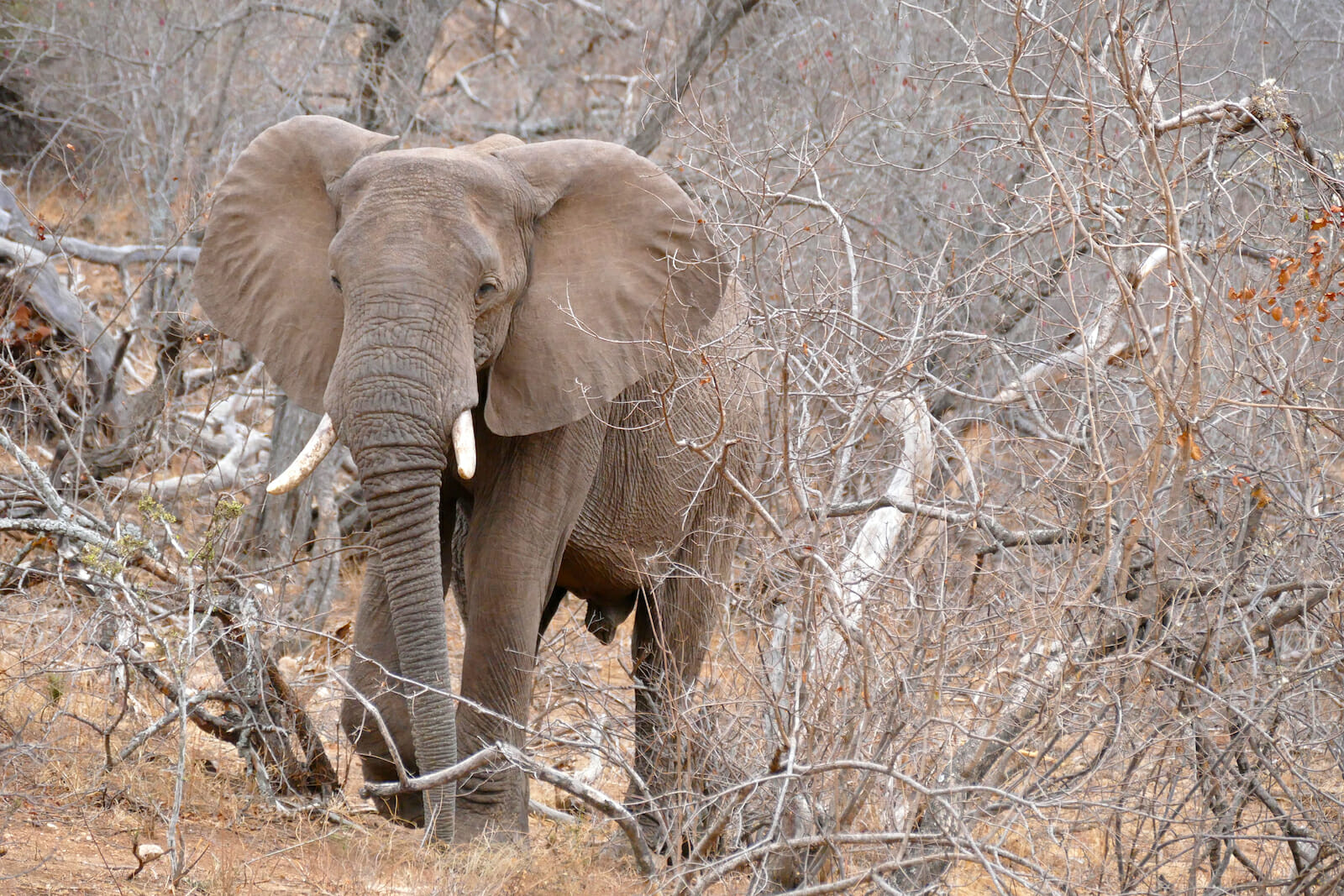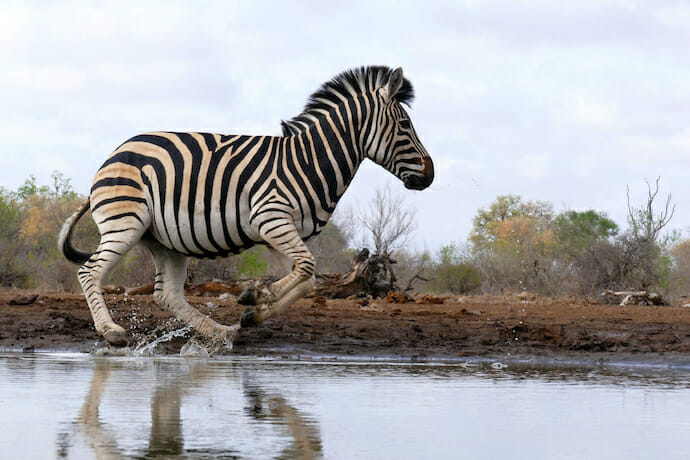
We are Having the Wrong Discussion about Hunting Tourism
I am a hunter and as such, I am naturally not an unbiased source of information about hunting. I therefore strongly recommend that anyone who is genuinely interested in the matter reads the IUCN briefing paper on the consequences of “trophy hunting,” which the organization published to inform EU parliamentarians in 2016.
I know that the thought of hunting as a tool to achieve practical nature conservation results is very counterintuitive to many people unfamiliar with the system. However, I believe that the following points about hunting tourism sums it up – feel free to correct me if you think, that I’m wrong.
In African countries with well-established hunting tourism (“trophy hunting”), natural habitat and populations of wildlife are typically growing or stable due to the simple fact that using the land as nature reserves with hunting tourism is better business than livestock farming.
In African countries without hunting tourism (“trophy hunting”), there is typically an ongoing loss of natural habitat and declining populations of wildlife because the animals have very little actual value to the local communities.
Most of all hunting tourism in Africa, 80% or more, takes place on former cattle and sheep farms that have gone through a re-wilding process. In South Africa alone, the 9,000+ private game reserves created over the last few decades take up an area roughly twice the size of Scotland. This has created habitat for millions of large wild animals.
No species is under threat because of hunting tourism. It is quite the contrary. Everything is closely monitored and regulated.
Hunting tourism has led to vastly improved conservation status of dozens of species. A few examples are the black wildebeest, bontebok, and the white rhino.
Income from hunting tourism supports hundreds of thousands of people in rural Africa.
Hunting tourism does not lead to the death of more animals than letting nature regulate itself. Sustainable hunting harvests from a natural surplus of animals.
Money from hunting tourism funds anti-poaching efforts in vast nature areas in African countries allowing big game hunting.
Hunting tourism is simply a part of local nature management. Nothing happens on a so-called “trophy hunt” that is not happening on any given big game hunt in Europe or North America. Only the species differ.
The meat from edible game animals is usually consumed locally. Nothing goes to waste.
Professional support
In December 2018 more than 300 nature conservation professionals from Africa and scientific institutions around the world summarized the situation in a letter to the editor in The Guardian:
“For rhino, elephant, lion and all the species mentioned in the letter, the International Union for Conservation of Nature (IUCN) – the global authority on conservation – considers that trophy hunting is not a key threat to their survival. Indeed, well-managed trophy hunting has led to increases in populations of rhino, elephant, lion, markhor, argali, chamois and others. The main problems facing these species are habitat loss and fragmentation, conflict with local people, prey-base depletion and illegal poaching.”
The only organizations that actually dispute the scientific approach of IUCN are animal rights organizations who base their entire case on emotional arguments. There is no peer-reviewed scientific studies to suggest that IUCN is wrong when they insist that “well-managed trophy hunting” does indeed work as a tool for nature conservation.
No viable alternative
I believe that everyone involved in this debate agrees that nature conservation is extremely important. We all want to see wildlife populations thrive in good natural habitats. I am sure that we all understand that it is very expensive to set aside land for nature and to protect the areas against human encroachment and poaching. The local communities must have financial incentives to protect nature. Otherwise, it simply will not work. Just as it did not work in our own part of the world when our ancestors eradicated bears, wolves, lynxes and wild boars because these animals got in the way of agriculture.

A lot of money and a lot of hard work is necessary to make nature conservation work on the ground. How will the people calling for a ban on trophy hunting make sure that the areas and wildlife populations, which are currently protected by funds and personnel from the hunting tourism industry, remain protected if hunting is banned? It’s a fair question. I have followed this debate for decades. I still have not seen a practical alternative to hunting tourism implemented in remote rural areas. I have not seen it on paper and I certainly have not seen it in real life.
Why not? What is keeping the anti-hunting community from taking over and running the hunting areas? Is anybody stopping them from buying all the hunting licenses and use them to not hunt the animals? It is actually really simple. If the animal rights organizations or any of the other anti-hunters were the highest bidders on the yearly auction for the 12 markhor licenses in Pakistan, the money would flow in to keep the conservation efforts going and these particular old bucks would probably live to die of old age. The same is true in every other area currently funded by hunting tourism. Nothing is stopping anti-hunters from paying the bill. However, they do not. They never did and they probably never will.
Without a will to pay, there is no working alternative to hunting tourism. No tooth fairies or Easter bunnies are going to step in. People are nevertheless calling for a ban. They literally suggest shutting down a running life-support system without having a working replacement in place simply because they do not like it. It is like filling your refrigerator with rare and expensive food and suddenly want to unplug it because you think the fridge is noisy. Your food will be spoiled unless you have the opportunity to move it to an equally efficient refrigerator. Right? This is not rocket science.
A blatant disrespect for facts
The ongoing discussion about hunting tourism and its consequences is probably among the most ignorant debates in the world.
Jim Cunningham, MP for Labour in the UK said: “Trophy hunting has become an industry in Africa. They see people coming from the United States and just killing tigers, for no apparent reason other than that they think they are getting a thrill out of killing the animal and can post it back to the United States or wherever they come from.”
He obviously knows very little about nature in general and about hunting tourism in particular. Ask your children if you doubt that I am right. It would be quite funny if it were not for the sad fact that he is a lawmaker.
During the same session in the British Parliament, Conservative MP Zac Goldsmith did not reveal a much deeper understanding of the subject when he said that he believes that evidence will emerge to prove “that the practice of trophy hunting has no net positive effect for conservation.” He went on to thank the animal rights organizations LionAid, Born Free and the Campaign to Ban Trophy Hunting for their work on banning hunting tourism. He did not reveal from where he expects the new information that refutes the scientific consensus that hunting tourism works.
Western mainstream media seem eager to promote comedians, actors, pop-stars, TV hosts and retired cricket players as practical conservation experts. They are all over the news, nobody asks any critical questions and if the other side of the debate is represented at all, they are actively demonized, outnumbered, interrupted and treated like the scum of the earth.
I find this circus extremely disrespectful to all the scientists and other nature conservation professionals who have worked with these matters for decades and have achieved quite impressive results all over the world.
Last year an open letter in The Guardian from a number of celebrities calling for a ban against trophy hunting received a lot of positive media attention. When more than 300 actual stakeholders from Africa and renowned scientists from all over the world replied, their answer was buried beneath a pile of replies as if the scientific, professional and experienced approach to conservation is somehow unimportant.
The scientific experts from organizations like the IUCN are rarely heard. Instead, the studios are filled up with people with a lot of opinions and very little, if any, practical experience in nature management.
I wonder if the media would primarily listen to the Flat Earth Society in a debate about space exploration. Would plumbers and farmhands be used as experts in a debate about open-heart surgery? Where did the fundamental respect for knowledge and experience go? Is nature conservation not important enough to merit a fact-based discussion?
Cultural imperialism
When the British secretary of the environment Michael Gove recently refused to ban the import of hunting trophies into the UK, he explained to the BBC that conservationists and charities had advised him to proceed with caution and that they told him, “Don’t come in, you know, with your clod-hopping boots from the UK and necessarily tell people in each of these countries exactly how they should regulate their own wildlife.” In other words, he chose to respect African nations’ own solutions to their own wildlife management challenges.
How would we feel if Namibia or Mozambique started to interfere with internal British matters based on some moral indignation over the British ways of life? Are we in a position to tell African nations how to manage their nature? Have we managed our own nature in an exemplary way?
Few people know that lions actually belong in Europe as much as they belong in Africa. The reason the big cats are not present on the continent anymore is that they were killed to make room for cattle many years ago. Africa is fighting to secure habitat for its remaining lions, but I have not seen any European plans to reintroduce the species here. Yet a lot of British politicians, celebrities and media clearly feel morally superior to Africans to a degree that justifies that we tell them exactly what to do – as if they were completely incompetent at managing their own wildlife.
Actually, southern Africa and North America are the only two places on the planet that has seen substantial increases in the numbers of large wild animals over the last five decades. They are in fact much better at practical nature conservation than the UK no matter whether we measure it in loss of biodiversity or the percentage of land set aside for wild nature…but you still have an urge to sabotage their efforts.
This is not only disrespectful to the African nations and their nature conservation professionals. It is also extremely arrogant in relation to the rural African communities who rely on this form of land use for income, jobs, and food. You are literally pulling money out of the pockets of some of the poorest people on the planet – and again this happens without any form of alternative plan in place.
The emotional angle
Everybody is well within their rights to feel whatever they want about hunting. No one is asking anyone neither to understand the recreational hunters’ motives nor to like hunting or the hunters. You can all hate us as much as you like. However, your feelings about hunting matters as little to nature conservation as my feelings about hunting – which is nothing at all.
Nature conservation is not about feelings. It is not about animal rights. It is not about animal welfare. It is not about individual animals with or without cute names.
What matters to nature conservation is the bottom line. The results. The numbers. The trends. What is the size and quality of the available habitat this year compared to last year? How are the populations doing? What are the actual threats and how do we address them?
Our planet is in its deepest nature crisis in the history of humankind. We are losing biodiversity at an alarming rate. We should all be grasping for any methods of nature conservation that works. If we lose this battle, there is no “Planet B.” No back-up inventory where we can pick up the species we did not manage to save.
Therefore, the time has come for all true conservationists to ask themselves what is most important. Do you prefer to feel morally superior to “evil trophy hunters” by pushing a ban on hunting or would you rather achieve actual nature conservation results by accepting a practice you do not like? Is your involvement all about you or is it actually about nature?
I am not telling you that hunting tourism is the only answer to any nature conservation challenge or that all hunting tourism is always good. Nor am I claiming that hunters are angels who first and foremost hunt to save the wildlife. In fact, we hunt primarily because we enjoy that experience. However, nature conservation is both a condition for and a natural consequence of sustainable hunting. The actual “heroes” of the system are the dedicated professionals who make it work. The landowners, the professional hunters, their employees, the scientists, the civil servants and everybody else. Let us all support these people.
